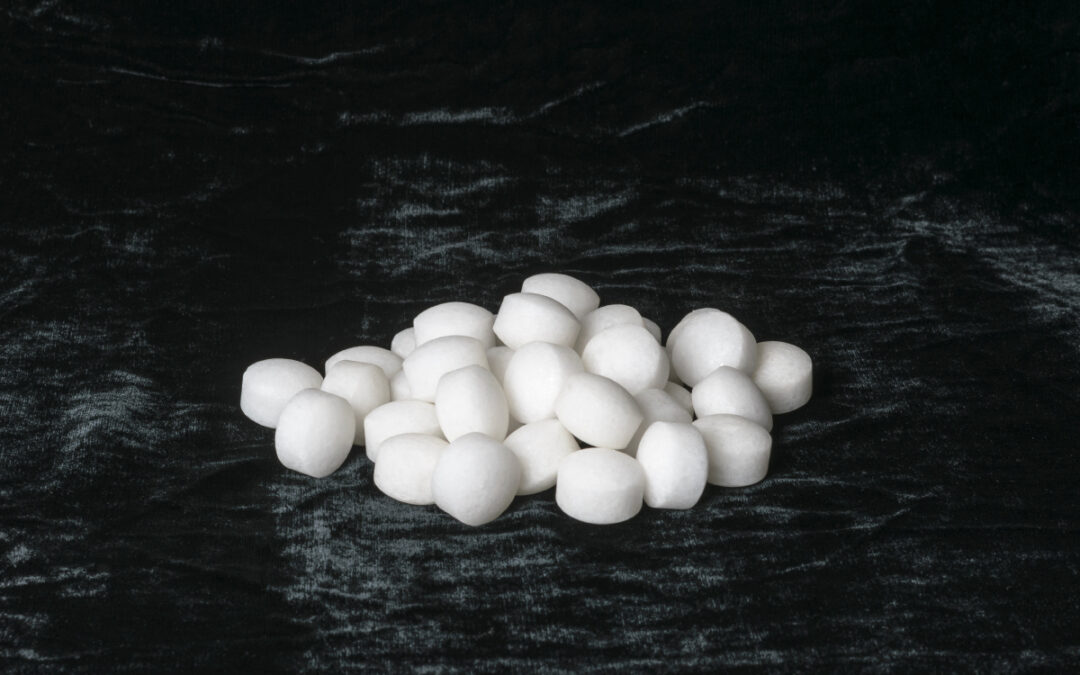When preparing to store your belongings, you’ll want to find a storage unit that offers protection from the elements, along with protection from pests and vermin. Storage units made of welded stainless steel, such as cargo shipping containers can be a great option for preventing insects, moths, mice, and rodents from entering your storage unit. But should you still place mothballs or other pest repellants in your storage unit? Read on to learn more about protecting your belongings from pests and insects while in storage.
Are Mothballs Recommended for Storage Units?
Using mothballs to protect your belongings (particularly clothing and fabrics) is a dated technique for preserving clothing. Although mothballs contain naphthalene, which repels moths and insects, they also present some clear risks.
Mothballs have a strong, distinct odor that can cling to all your belongings. The odor is the result of the chemicals used, which cause some people to experience headaches, coughing, eye and nose irritation along with nausea. The chemical naphthalene is also listed as a possible carcinogen.
Pest Control for Storage Units: Alternative Options
Rather than placing mothballs in your storage unit, you should consider that many natural, safe alternatives are available to prevent insect damage to your belongings. Safer, natural alternatives that are better suited for storage units, and keep your belongings free of dangerous chemicals include:
- Cedar chips and blocks
- Lavender satchels
- Rosemary, clove, thyme pouches
- Mint placed in breathable bags
If you’re worried about moths or insects, you may also wish to place all clothing and fabrics in sealed containers before placing them in your storage unit.
Are Pest Repellants Necessary for Storage Units?
If you store your belongings in an indoor storage facility, mice, rats, and other pests have the potential to infiltrate your storage unit. However, if you choose to store your belongings in a stainless steel shipping container, the pests will have a tough time accessing your belongings.
However, you’re welcome to use pest repellants if you want, though you should avoid mousetraps and poisons. If you put a trap or poison in your unit, you’ll need to visit your unit every day to check the traps.
Natural rodent deterrents, which can also make your belongings smell nice include:
- Peppermint essential oil-soaked cotton balls
- Lavender essential oil-soaked cotton balls
- Cinnamon essential oil-soaked cotton balls
How to Prevent Rodents and Pests from Accessing Your Storage Unit
One of the best ways to protect your items from insect or pest damage is to ensure that your belongings are simply not interesting or attractive to bugs and pests. Putting your belongings in sealed boxes is a great preventative measure. Ensuring that there is no food anywhere in your belongings will also prevent pests from catching the scent of food. Keeping your belongings elevated while in storage may also prevent rodent damage. Finally, consider covering furniture with plastic. That way if a moth or other insect makes its way inside, it can’t do much damage.
Cargo Shipping Containers: Pest Resistant Storage Units
Shipping containers make great storage units because they are made of stainless steel that is welded together. Mice, rats, and other rodents have no opportunity to infiltrate your storage unit from above or below. With only one door, insects also have limited access to your stored items. To learn more about renting a shipping container storage unit in Lane County from Chambers Connector Storage, call 541-302-8060, or send us a message today.


Recent Comments